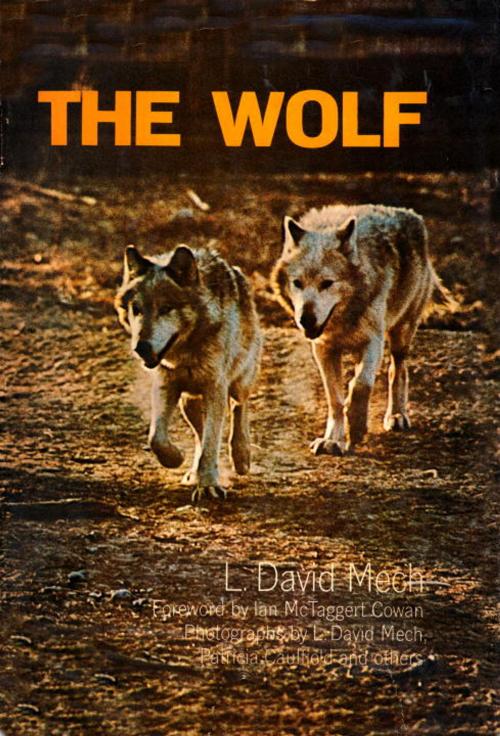| Author: | L. David Mech | ISBN: | 9780307819130 |
| Publisher: | Knopf Doubleday Publishing Group | Publication: | May 16, 2012 |
| Imprint: | Doubleday | Language: | English |
| Author: | L. David Mech |
| ISBN: | 9780307819130 |
| Publisher: | Knopf Doubleday Publishing Group |
| Publication: | May 16, 2012 |
| Imprint: | Doubleday |
| Language: | English |
Throughout the continents of Eurasia and North American primitive man evolved in association with wolves. Wolves competed with him as a hunter, and raided his flocks and herds. Inevitably, folklore became rich in tales of this powerful, resourceful creature.
Europeans reached North American with their attitudes already formed. The wilderness pressed in upon their tiny settlements in constant threat and all energies were devoted to destroying it and turning its inexhaustible resources to use. Over vast areas of the continent the wolf went down with the wilderness before the unprecedented effectiveness of our technological attack on the ecology of a continent.
Today, however, there is a great tide of concern over the consequences of our assault on the wild lands and wild creatures on the continent, and more and more biologists are devoting their knowledge and energy to searching studies of our land and its native biota.
The wolf has been the subject of detailed study by a number of ecologists on this continent who make use of all the research devices now available. Much of our knowledge is very recent, is increasing rapidly, and has resulted from the work of a mere handful of keen, resourceful, and courageous students of wolf biology. This, the first book to attempt a complete account of the biology of the wolf, draws from years of field research and upon the rich literature from two continents.
--From the foreword by Ian McTaggert Cowan
Throughout the continents of Eurasia and North American primitive man evolved in association with wolves. Wolves competed with him as a hunter, and raided his flocks and herds. Inevitably, folklore became rich in tales of this powerful, resourceful creature.
Europeans reached North American with their attitudes already formed. The wilderness pressed in upon their tiny settlements in constant threat and all energies were devoted to destroying it and turning its inexhaustible resources to use. Over vast areas of the continent the wolf went down with the wilderness before the unprecedented effectiveness of our technological attack on the ecology of a continent.
Today, however, there is a great tide of concern over the consequences of our assault on the wild lands and wild creatures on the continent, and more and more biologists are devoting their knowledge and energy to searching studies of our land and its native biota.
The wolf has been the subject of detailed study by a number of ecologists on this continent who make use of all the research devices now available. Much of our knowledge is very recent, is increasing rapidly, and has resulted from the work of a mere handful of keen, resourceful, and courageous students of wolf biology. This, the first book to attempt a complete account of the biology of the wolf, draws from years of field research and upon the rich literature from two continents.
--From the foreword by Ian McTaggert Cowan















